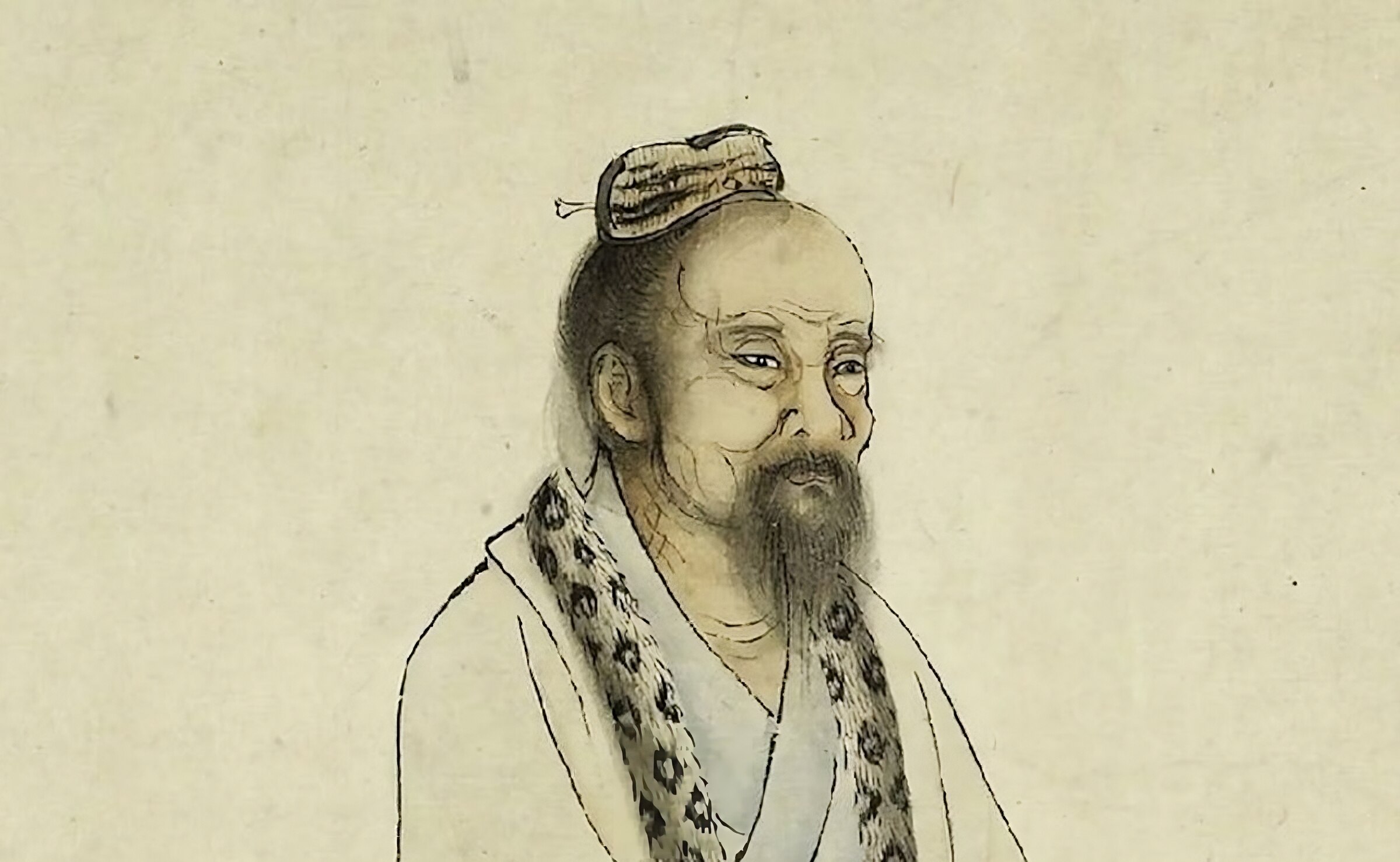
Are you ready to have your mind blown? Brace yourself as we dive into the fascinating world of Zhuangzi, a legendary figure in Chinese philosophy. Zhuangzi, also known as Master Zhuang, was a renowned Daoist philosopher who lived during the Warring States period in ancient China. His teachings and writings continue to captivate the minds of philosophers, scholars, and intellectuals even after over two thousand years.
In this article, we will explore eight mind-blowing facts about Zhuangzi, shedding light on his profound insights and unique perspectives. From his philosophical concepts to his allegorical tales, Zhuangzi’s wisdom has left an indelible mark on Chinese culture, influencing not only philosophy but also literature, art, and even daily life.
Buckle up and get ready to be amazed as we uncover the incredible world of Zhuangzi and the timeless wisdom that continues to intrigue and inspire generations.
Key Takeaways:
- Embrace nature and spontaneity: Zhuangzi’s philosophy encourages living in harmony with nature and embracing the natural flow of life to find true peace and contentment.
- Question perspectives and embrace change: Zhuangzi’s teachings challenge conventional wisdom, promote open-mindedness, and inspire individuals to find balance and fulfillment in a harmonious way of living.
Zhuangzi was an influential Chinese philosopher.
Regarded as one of the most important figures in ancient Chinese philosophy, Zhuangzi (also known as Chuang Tzu) lived during the Warring States period in the 4th century BCE. His ideas, writings, and teachings have had a profound impact on the development of Taoism and other philosophical schools in China.
Zhuangzi’s philosophy emphasized spontaneity and living in harmony with nature.
Zhuangzi believed in the concept of Wu Wei, which means “non-action” or “effortless action.” He encouraged individuals to embrace the natural flow of life and avoid unnecessary struggles or conflicts. According to him, by aligning oneself with the rhythm of nature, one can achieve true peace and contentment.
Zhuangzi’s writings are collected in a book known as the “Zhuangzi.”
The book named after him, the “Zhuangzi,” consists of a collection of anecdotes, allegories, and dialogues that illustrate his philosophical ideas. It is considered one of the foundational texts of Daoism, attracting readers with its insightful and thought-provoking narratives.
Zhuangzi was known for his use of humor and satire.
In his writings, Zhuangzi employed clever wordplay, absurd scenarios, and humorous anecdotes to convey deeper philosophical truths. Through satire and irony, he challenged conventional wisdom and exposed the limitations of rigid thought patterns, inviting readers to question their perspectives and embrace a more open-minded approach to life.
Zhuangzi introduced the concept of “Zhuangzi butterfly dream.”
One of Zhuangzi’s most famous anecdotes is the “Zhuangzi butterfly dream.” In this story, he contemplates the nature of reality by questioning whether he is a man dreaming of being a butterfly or a butterfly dreaming of being a man. This tale reflects his philosophical stance on the illusory nature of existence and the subjective nature of perception.
Zhuangzi advocated for the idea of relativism.
Zhuangzi rejected absolute truths and believed that reality is subjective and varies according to individual perspectives. He argued that truth is relative and depends on one’s own experience and understanding. This viewpoint challenged the prevailing notion of objective truth and encouraged a more flexible and open-minded approach to knowledge.
Zhuangzi’s philosophy influenced not only Taoism but also other philosophical traditions.
Zhuangzi’s ideas had a significant impact not only on the development of Taoism but also on other philosophical schools in ancient China, such as Confucianism and Legalism. His emphasis on individual freedom, skepticism towards authority, and appreciation of the natural world resonated with scholars and thinkers from various backgrounds.
Zhuangzi’s teachings continue to inspire and resonate with people today.
The wisdom and insights of Zhuangzi have transcended time and continue to be relevant in the modern world. His emphasis on living authentically, embracing change, and finding harmony within oneself and with the natural world resonates with individuals seeking a more balanced and fulfilling life.
Overall, the 8 Mind-blowing Facts About Zhuangzi demonstrate the enduring influence and significance of this remarkable Chinese philosopher. His teachings continue to inspire and challenge us to rethink our perspectives and embrace a more harmonious way of living.
Conclusion
In conclusion, Zhuangzi is an incredibly fascinating figure in Chinese philosophy. His unique perspective and innovative ideas have left a lasting impact on both Eastern and Western philosophies. From his emphasis on the concept of Dao and the importance of embracing the natural flow of life, to his profound insights on the nature of reality and the self, Zhuangzi’s teachings continue to provoke thought and inspire contemplation.By delving into the mind of Zhuangzi and exploring his philosophy, we can gain a deeper understanding of the complexity of human existence and the interconnectedness of all things. His writings challenge conventional thinking and invite us to question our own perspectives and assumptions about the world. Whether we are seeking spiritual enlightenment or simply looking for a new lens through which to view the world, studying Zhuangzi’s work offers a wealth of wisdom and thought-provoking ideas.In an ever-changing and fast-paced world, the timeless wisdom of Zhuangzi serves as a reminder to slow down, observe, and appreciate the beauty and intricacy of existence. By embracing the teachings of Zhuangzi, we can cultivate a deeper sense of peace, harmony, and wisdom in our lives.
FAQs
Q: Who was Zhuangzi?
A: Zhuangzi was an ancient Chinese philosopher and writer who lived during the late Warring States period. He is considered one of the most influential figures in Daoist philosophy and is known for his collection of writings, commonly referred to as the “Zhuangzi.”
Q: What are some key concepts in Zhuangzi’s philosophy?
A: Some key concepts in Zhuangzi’s philosophy include the concept of Dao, which refers to the natural way or path, the idea of embracing the spontaneity of life, the importance of self-cultivation, and the notion of relativism and subjectivity in determining truth and reality.
Q: How has Zhuangzi’s philosophy influenced Eastern and Western thought?
A: Zhuangzi’s philosophy has had a profound impact on both Eastern and Western thought. His ideas on the nature of reality, the self, and the limits of knowledge have influenced philosophers, scholars, and thinkers across various disciplines and time periods, including Daoism, Confucianism, Buddhism, existentialism, and postmodernism.
Q: What can we learn from studying Zhuangzi’s philosophy?
A: Studying Zhuangzi’s philosophy can offer valuable insights into the nature of existence, the importance of embracing change and uncertainty, the limitations of human knowledge, and the need to cultivate wisdom and authenticity. It encourages us to question traditional norms and ways of thinking and to develop a more open and flexible mindset.
Q: How can we apply Zhuangzi’s teachings in our daily lives?
A: Applying Zhuangzi’s teachings in our daily lives involves embracing the spontaneity of life, cultivating a sense of detachment from external circumstances, and striving to align ourselves with the natural flow of the universe. It requires us to let go of fixed notions and expectations, to live in the present moment, and to seek a deeper understanding of ourselves and the world around us.
Zhuangzi's teachings continue to captivate minds, much like other Taoist principles that emphasize harmony and simplicity. His ideas also share similarities with other Chinese philosophical traditions, such as those explored by Xunzi. Beyond China, Zhuangzi's insights resonate with wisdom found in ancient texts like the Vedas, highlighting the universal nature of the human quest for understanding. As you ponder these mind-blowing facts about Zhuangzi, consider delving deeper into the rich tapestry of philosophical thought that has shaped our world.
Was this page helpful?
Our commitment to delivering trustworthy and engaging content is at the heart of what we do. Each fact on our site is contributed by real users like you, bringing a wealth of diverse insights and information. To ensure the highest standards of accuracy and reliability, our dedicated editors meticulously review each submission. This process guarantees that the facts we share are not only fascinating but also credible. Trust in our commitment to quality and authenticity as you explore and learn with us.


